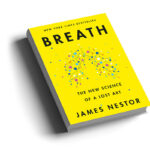Now Reading: 10 Powerful Steps to Revitalize Your Life and Reclaim Balance: A Complete Guide to Wellness
-
01
10 Powerful Steps to Revitalize Your Life and Reclaim Balance: A Complete Guide to Wellness
- Home
- Health & Wellbeing
- 10 Powerful Steps to Revitalize Your Life and Reclaim Balance: A Complete Guide to Wellness
10 Powerful Steps to Revitalize Your Life and Reclaim Balance: A Complete Guide to Wellness
BooshkaHealth & Wellbeing1 year ago649 Views

10 Transformative Steps to Revitalize Your Life and Reclaim Balance
Life has a way of pulling us in many directions, leaving us feeling unbalanced, fatigued, and disconnected from ourselves. But with intentional steps, you can recharge your energy, sharpen your focus, and create a life that feels fulfilling. Here are 10 in-depth strategies to help you get back on track.
1. Sleep: The Ultimate Reset Button
Sleep isn’t just rest; it’s the foundation of recovery and mental clarity. Yet, many of us underestimate its power. Sleep regulates hormones, supports immune function, and allows our brains to process the events of the day.
How to optimize your sleep:
- Reset Your Circadian Rhythm: Rise with the sun and wind down as it sets. Watching the sunrise and sunset helps regulate your body’s internal clock.
- Eliminate Blue Light Exposure: Artificial light, especially from screens, suppresses melatonin production, making it harder to sleep. Use red-light-blocking glasses and replace harsh overhead lights with warm, amber-hued lamps at night.
- Create a Nightly Ritual: Establish calming activities like reading, meditation, or a warm bath before bed. Avoid heavy meals, caffeine, and alcohol in the hours leading up to sleep.
- Optimize Your Sleep Environment: A cool, dark, and quiet room is ideal for quality rest. Consider blackout curtains, white noise machines, or a fan for comfort.
If you struggle with insomnia or poor-quality sleep, consider mindfulness practices or consult a healthcare professional for further guidance.
2. Eat Your Last Meal Earlier
Digestion is energy-intensive, and eating too close to bedtime can interfere with your body’s ability to focus on repair and recovery while you sleep. Over time, this habit can leave you feeling fatigued and unrefreshed in the morning.
Tips for better meal timing:
- Finish Eating 3-4 Hours Before Bed: This gives your body time to process your last meal before winding down.
- Avoid Heavy Meals Late in the Evening: Opt for lighter, easily digestible foods if you need a late-night snack.
- Stay Consistent: Maintaining a regular eating schedule can help regulate your metabolism and improve digestion over time.
- Listen to Your Body: If you feel hungry before bed, try a cup of herbal tea or a handful of nuts rather than a full meal.
3. Move Your Body Daily
Movement is medicine. It improves circulation, enhances mood, and boosts energy levels. Physical activity helps release endorphins, known as “feel-good” hormones, and supports your cardiovascular system, muscles, and joints.
How to integrate movement into your life:
- Start Small: Gentle exercises like yoga, qigong, or stretching can help you ease into a routine, especially if you’re new to regular activity.
- Walk with Intention: Daily walks, particularly in nature, combine physical activity with the grounding benefits of fresh air and sunlight.
- Mix It Up: Incorporate a variety of exercises to keep things interesting—strength training, swimming, or dancing are excellent options.
- Make It Fun: Find activities you enjoy so exercise feels less like a chore and more like self-care.
4. Soak in Sunlight and Boost Your Vitamin D
Sunlight is essential for life. It powers our planet and directly impacts our health by regulating our circadian rhythm, improving mood, and stimulating vitamin D production.
Ways to harness sunlight effectively:
- Morning Sun Exposure: Spend at least 15-30 minutes outdoors in the morning to set your body’s internal clock and boost energy.
- Engage in Outdoor Activities: Pair sun exposure with activities like walking, gardening, or yoga.
- Be Mindful of UV Rays: While sunlight is beneficial, avoid prolonged exposure during peak hours (10 a.m. to 3 p.m.) and use sun protection as needed.
- Supplement if Necessary: If you live in a region with limited sunlight, consider taking a vitamin D supplement after consulting with a healthcare provider.
5. Stay Hydrated for Optimal Health
Water is the lifeblood of our bodies. Proper hydration supports digestion, circulation, and even mental clarity. Yet, many people unknowingly live in a state of chronic dehydration.
Hydration tips:
- Sip Throughout the Day: Aim to drink small amounts regularly rather than chugging large volumes at once.
- Enhance Absorption: Add a pinch of high-quality sea salt to your water to improve electrolyte balance and ensure the water reaches your cells.
- Invest in Quality Water: Filter your water to remove contaminants and consider a system that re-mineralizes for added benefits.
- Monitor Your Body: Common signs of dehydration include dry skin, fatigue, and headaches. Adjust your water intake based on your activity level and climate.
6. Connect with Loved Ones and Find Joy in Life
Human connection is vital for emotional well-being. Spending quality time with friends and family nourishes your spirit and fosters a sense of belonging
Ways to cultivate connection and joy:
- Schedule Regular Gatherings: Set aside time for meals, activities, or simple conversations with loved ones.
- Rediscover Hobbies: Revisit activities you loved as a child or try something new that sparks joy.
- Play Like a Kid: Allow yourself to laugh, dance, and explore without judgment.
- Balance Work and Play: Make space in your life for fun and relaxation, even if it means saying “no” to less important obligations.
7. Journal or Speak Your Thoughts
Journaling and speaking your thoughts aloud are therapeutic practices that help declutter your mind and provide clarity.
Benefits and methods of journaling:
- Declutter Your Mind: Writing down your worries or ideas frees mental space for creativity and focus.
- Set Intentions: Use your journal to outline goals, plans, or affirmations.
- Reflect with Gratitude: List three things you’re grateful for daily to shift your perspective to positivity.
- Talk It Out: If writing isn’t your style, try recording voice memos or speaking your thoughts aloud in a private space.
8. Choose High-Quality, Nourishing Foods
Your diet profoundly affects your energy levels, mood, and overall health. Prioritize foods that fuel your body and mind.
Nutrition essentials:
- Opt for Whole, Organic Foods: Choose fresh, organic produce and clean proteins whenever possible.
- Limit Processed Foods: Reduce your intake of packaged and highly processed items.
- Experiment to Find What Works for You: Track how different foods make you feel and adjust your diet accordingly.
- Focus on Protein-Rich Breakfasts: Start your day with a meal that stabilizes blood sugar and provides sustained energy.
9. Release Energy Through Sound
Humming or singing is a simple yet transformative practice that can help release tension and improve mood.
How to incorporate sound healing:
- Hum During Quiet Moments: This stimulates your vagus nerve, promoting relaxation.
- Sing Freely: Let loose and sing along to your favorite songs—it’s a natural mood booster.
- Explore Sound Therapy: Experiment with chanting, toning, or sound bowls for meditative benefits.
10. Ground Yourself in Nature
Grounding, or earthing, connects you directly to the earth’s energy, offering profound health benefits. Research suggests grounding can reduce inflammation, improve sleep, and lower stress.
How to ground yourself:
- Walk Barefoot: Spend 20-30 minutes a day walking on grass, sand, or soil.
- Swim in Natural Waters: Oceans, rivers, and lakes are excellent for grounding.
- Lie on the Earth: Take time to sit or lie down in a natural setting, soaking in both the sun and the earth’s energy.
Conclusion: Small Steps, Big Changes
Revitalizing your life doesn’t require drastic changes overnight. By integrating these practices into your daily routine, you’ll gradually feel more balanced, energized, and fulfilled. Start with one step at a time, listen to your body, and honor the journey of self-discovery and growth.






























